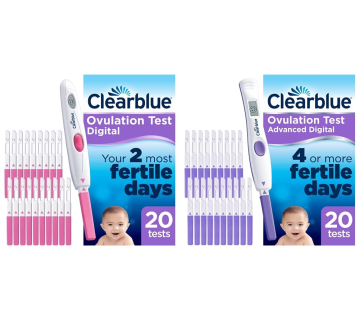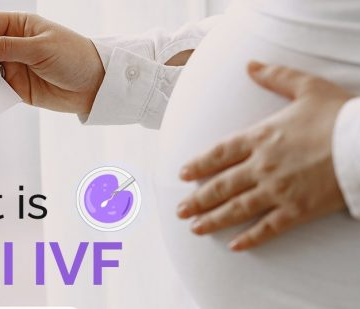
Natural Cycle IVF
Starting a family through in vitro fertilization (IVF) is a significant and hopeful journey. While traditional IVF involves stimulating the ovaries to produce multiple eggs, there is an alternative called Natural Cycle IVF. If you’re curious about what Natural Cycle IVF is and how it differs from standard IVF, this guide will help you understand the process, benefits, and what to expect.
What is Natural Cycle IVF?
Natural Cycle IVF is a fertility treatment that mimics the natural menstrual cycle without the use of extensive fertility medications. Instead of stimulating the ovaries to produce many eggs, Natural Cycle IVF focuses on retrieving the single egg that your body naturally releases each month. This approach can be a good option for women who have a good ovarian reserve and prefer a more natural approach to IVF.
Dr. Emily Carter, a fertility specialist, explains:
“Natural Cycle IVF is less invasive and involves fewer medications, making it a gentler option for women who respond well naturally. It allows us to work with the body’s natural rhythm to achieve pregnancy.”
How Does Natural Cycle IVF Work?
The process of Natural Cycle IVF closely follows the natural menstrual cycle. Here are the key steps involved:
- Monitoring the Cycle
- Tracking Ovulation: Your doctor will monitor your cycle through ultrasound and blood tests to determine the best time for egg retrieval. This helps identify when your natural egg is ready for collection.
- Egg Retrieval
- Procedure: On the day of ovulation, a minor surgical procedure is performed to retrieve the egg from the ovary. This is usually done under mild sedation and takes about 20-30 minutes.
- Fertilization
- Lab Process: The retrieved egg is fertilized with sperm in the laboratory. Once fertilized, the embryo is allowed to grow for a few days.
- Embryo Transfer
- Transferring the Embryo: A healthy embryo is selected and transferred into your uterus. This step is similar to traditional IVF and does not involve extensive medication.
- Pregnancy Test
- Two-Week Wait: About two weeks after the embryo transfer, you’ll take a pregnancy test to see if the procedure was successful.
Benefits of Natural Cycle IVF
Natural Cycle IVF offers several advantages, especially for certain groups of women:
- Fewer Medications: Since Natural Cycle IVF relies on the body’s natural egg production, it uses fewer fertility drugs, reducing the risk of side effects.
- Lower Cost: Fewer medications and less intensive monitoring can make Natural Cycle IVF more affordable compared to traditional IVF.
- Less Stress on the Body: This approach is less invasive and places less physical stress on the ovaries, making it suitable for women who prefer a more natural method.
- Reduced Risk of Ovarian Hyperstimulation Syndrome (OHSS): Without the use of high doses of fertility drugs, the risk of OHSS, a serious complication of IVF, is minimized.
Dr. Michael Lee, an obstetrician, advises:
“Natural Cycle IVF is an excellent option for women who have a good ovarian reserve and prefer to avoid the side effects of fertility medications. It offers a more natural and less stressful approach to achieving pregnancy.”
Who is a Good Candidate for Natural Cycle IVF?
Natural Cycle IVF is not suitable for everyone. It is best suited for:
- Women with Good Ovarian Reserve: Those who naturally produce a healthy number of eggs each cycle.
- Younger Women: Younger women often have a better response to Natural Cycle IVF.
- Women with Mild Infertility Issues: It works well for those whose infertility is not due to severe factors.
- Those Preferring a Natural Approach: Women who prefer minimal medication and a more natural treatment process.
Potential Drawbacks of Natural Cycle IVF
While Natural Cycle IVF has its benefits, there are also some limitations to consider:
- Lower Success Rates: Since only one egg is retrieved each cycle, the chances of success are lower compared to traditional IVF, which retrieves multiple eggs.
- Higher Risk of Single Pregnancy: While this can be a benefit for some, it means there’s a lower chance of having twins or multiples.
- Timing Sensitivity: The procedure relies heavily on precise timing, which can sometimes lead to scheduling challenges.
Managing Expectations with Natural Cycle IVF
Understanding what to expect can help you navigate the Natural Cycle IVF process with confidence:
- Emotional Preparedness: IVF can be emotionally challenging. Having a support system and staying informed about the process can help manage stress and anxiety.
- Physical Well-Being: Maintaining a healthy lifestyle with a balanced diet and regular, gentle exercise can support your overall health during treatment.
- Open Communication: Regularly communicating with your fertility specialist ensures that any concerns or questions are addressed promptly.
Dr. Sarah Nguyen, a reproductive psychologist, notes:
“Emotional support and open communication with your healthcare team are crucial during Natural Cycle IVF. Staying positive and informed can significantly impact your overall experience and outcomes.”
Cost of Natural Cycle IVF
Natural Cycle IVF is generally less expensive than traditional IVF due to the reduced use of medications and fewer required monitoring visits. On average, the cost can range from $4,000 to $6,000 per cycle, compared to $12,000 to $15,000 for traditional IVF. However, costs can vary based on the clinic, location, and any additional services required.
Final Thoughts
Natural Cycle IVF offers a more natural and less invasive alternative to traditional IVF, making it an appealing option for many women. While it may have lower success rates per cycle, the reduced physical and financial burden can make it a suitable choice for those who are good candidates. By understanding the process, benefits, and potential drawbacks, you can make an informed decision that best suits your fertility needs and personal preferences.
Dr. Emily Carter concludes:
“Natural Cycle IVF is a valuable option for women seeking a gentler approach to fertility treatment. With careful monitoring and support, it can lead to successful pregnancies while minimizing the use of medications and reducing overall stress.”
If you’re considering IVF, discuss with your fertility specialist whether Natural Cycle IVF is the right path for you. With the right guidance and support, you can embark on your journey to parenthood with confidence and hope.


